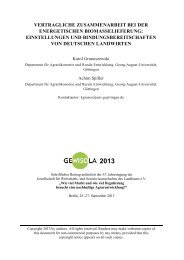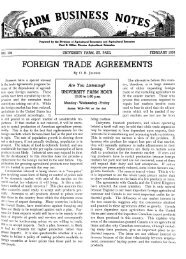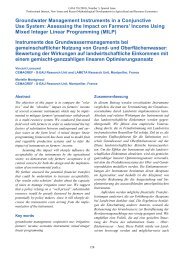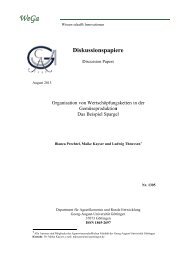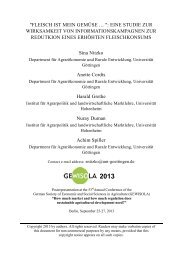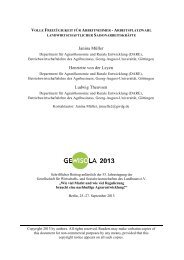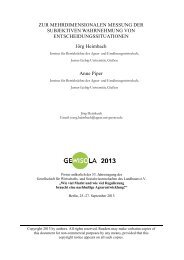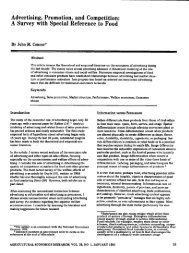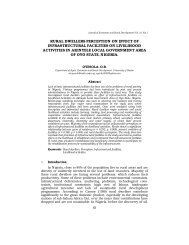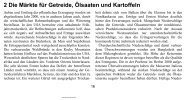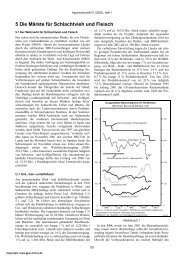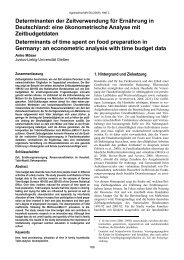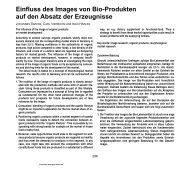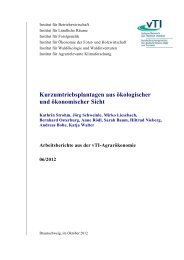District Institutes of Education and Training - Teacher Education
District Institutes of Education and Training - Teacher Education
District Institutes of Education and Training - Teacher Education
Create successful ePaper yourself
Turn your PDF publications into a flip-book with our unique Google optimized e-Paper software.
<strong>District</strong> <strong>Institutes</strong> <strong>of</strong> <strong>Education</strong> <strong>and</strong> <strong>Training</strong>: A Comparative Study in Three Indian States<br />
The Resource Person tier <strong>of</strong> the cascade was most criticised. <strong>Teacher</strong>s are still not<br />
fully satisfied with Resource Persons’ ability to address all the queries they raise,<br />
<strong>and</strong> have questions about their competence <strong>and</strong> confidence. Master Trainers<br />
discussed with the research team the question <strong>of</strong> whether all the Resource Persons<br />
have sufficient knowledge as well as the ability to deliver. Since smaller numbers<br />
<strong>of</strong> Resource Persons are required, <strong>and</strong> many <strong>of</strong> them are regular DIET staff, this is<br />
part <strong>of</strong> the continuing debate about the quality <strong>of</strong> those who are appointed teacher<br />
educators. The cascade experience provides further evidence that a comprehensive<br />
pr<strong>of</strong>essional development strategy for DIET staff needs to be put in place.<br />
Box 9.3: Trainer evaluation: some preliminary steps<br />
Does this trainer have:<br />
• Clear ability to identify through discussions with teachers their training<br />
needs?<br />
• Clear knowledge <strong>and</strong> underst<strong>and</strong>ing <strong>of</strong> the necessary concepts, relevant<br />
teaching approaches, <strong>and</strong> classroom management strategies?<br />
• Good communication skills <strong>and</strong> the ability to address an audience <strong>of</strong> teachers<br />
who may be at different stages <strong>of</strong> competence themselves?<br />
• Excellent content knowledge?<br />
• Knowledge <strong>of</strong> the current situation in primary schools, gained from recent<br />
visits <strong>and</strong> discussions with teachers?<br />
• The ability <strong>and</strong> skills to demonstrate effective teaching approaches in<br />
different contexts, <strong>and</strong> also to explain choices made?<br />
• The ability <strong>and</strong> skills to differentiate between teaching adults, <strong>and</strong> teaching<br />
children?<br />
• …<br />
Box 9.3 contains some aspects that have emerged as relevant during this research.<br />
A checklist along these lines may be more useful in developing a pool <strong>of</strong> top<br />
quality Resource Persons, <strong>and</strong> also Master Trainers, than going by the degree<br />
qualifications or certificates held by an individual, or the number <strong>of</strong> training<br />
programmes s/he has conducted. It is not appropriate for teachers to be trained by<br />
a trainer (in this case a Cluster Resource Centre leader) who herself does not<br />
underst<strong>and</strong> the relationship between what she does <strong>and</strong> children’s learning:<br />
K Those few who are left behind in the end make mistakes like that…<br />
S1 Then how do they improve?<br />
K No… but then later they know.<br />
S1 Later they know - how does that happen?<br />
K Is it because <strong>of</strong> their age that their underst<strong>and</strong>ing also develops or what<br />
even I don’t know. Because I do not do any miracle nor do I give them any<br />
kind <strong>of</strong> special treatment but I don’t know whether next year their<br />
DFID 187



